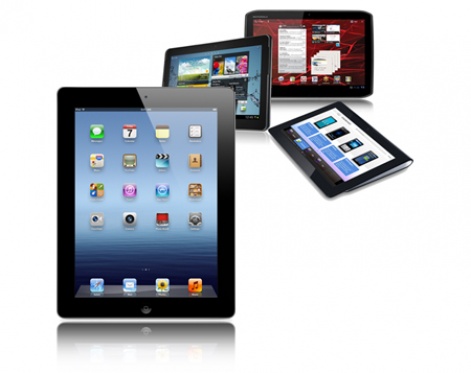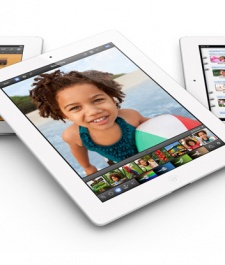Like much of what was revealed at the device's San Francsico splash, it was a feature we all knew was coming.
Even since before iPad 2 rolled into town, commentators have constantly talked up the prospect of a high resolution iPad hitting the market at some point in the near future.
Its final unveiling has resulted in Apple grabbing headlines aplenty around the globe and, come launch on 16 March, will generate much fervour in the queues that will undoubtedly snake outside Apple's stores.
The overwhelming question in my mind when watching this unfold, however, was why this had happened.
Let me clarify: I don't mean I was questioning why Apple had unveiled a supposed 'HD tablet', but rather, why Apple's rivals had let the manufacturer be the first to do so.
Tech talk
Admittedly, I'm no expert when it comes to the inner workings behind such features. I have no grasp of how much a Retina Display costs to build or equip, or what the various technical implications of doing so are.
Nonetheless, given we've all known that this is exactly what Apple has had planned for the best part of two years, the fact none of its competitors have seen fit to get one step ahead - fitting their own high-res displays on their respective iPad rivals - absolutely baffles me.
There's currently only one way manufacturers can hope to give iPad a run for its money, and that's by offering an alternative at a far cheaper price.
Amazon's Kindle Fire, RIM's various PlayBook price cuts and HP's TouchPad firesale prove that, if the RRP is low enough, consumers can be tempted away from the all conquering iOS.
But such a strategy means that, unless the company in question is willing to take a big financial hit in return for a quick land grab of market share, the technical specifications of the tablet in question will be limited.
Positioning is everything
As a result, the only other option is to try and outclass iPad when it comes to both the technology involved, or the features of the associated OS.
The latter is largely in the hands of Google and, in the coming months, Microsoft, and while Samsung may argue that its Galaxy Note 10.1 outperforms the new iPad in terms of stylus control, that's not a feature that will win over all too many Apple enthusiasts at the tills.
Instead, the perfect way rivals could have 'upset the Apple cart' would have been to prepare to unveil a high resolution Android tablet during Mobile World Congress in Barcelona, mere days before iPad's big reveal.
It's worth nothing, I'm not necessarily of the view that iPad's crisper display is a meaningful step forward, but it's undoubtedly resulting in a big PR win.
As such, any new tablet sporting features that stop Tim Cook waxing lyrical about iPad being the first to ship with a supposed show stopping feature has to be a good thing. Tablets are undoubtedly a luxury item, and when it comes to goods like this, product positioning is half the battle.
Out ahead
The fact Apple's rivals rarely attempt to surpass iPad when it comes to such flash features suggests to me that most still have little idea what they're doing in the tablet market, or why the sector even exists.
By constantly playing catch up - incorporating features six months or so after iPad, at best - manufacturers are handing the market to Apple on the plate, letting the firm mop up mindshare and market share alike, dictating where the sector moves next in the process.
And, if there's one thing we know from iPhone's steady, but rarely spectacular, evolution, is that Apple moves the market forward at its own pace.
Only when it deems that one of its rivals is getting to close for comfort does it upgrade hardware or firmware in a meaningful fashion.
As wowed as consumers will undoubtedly be by iPad's Retina Display when they see one on show on the high street, the fact Apple hasn't been forced to deviate from the original iPad's blueprint in either of the device's first two major revisions is evidence of where its rivals stand right now: firmly in the shade.






















